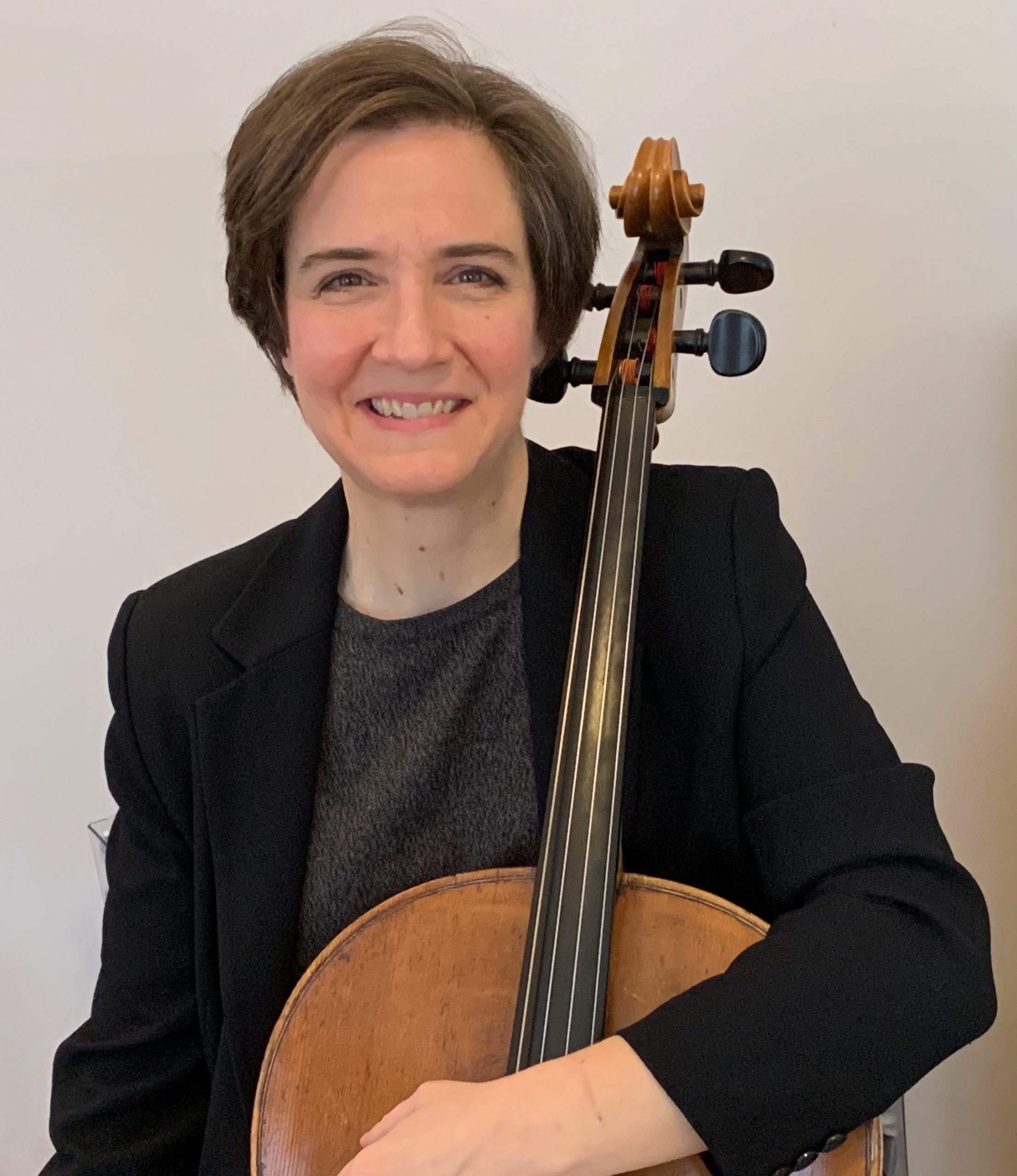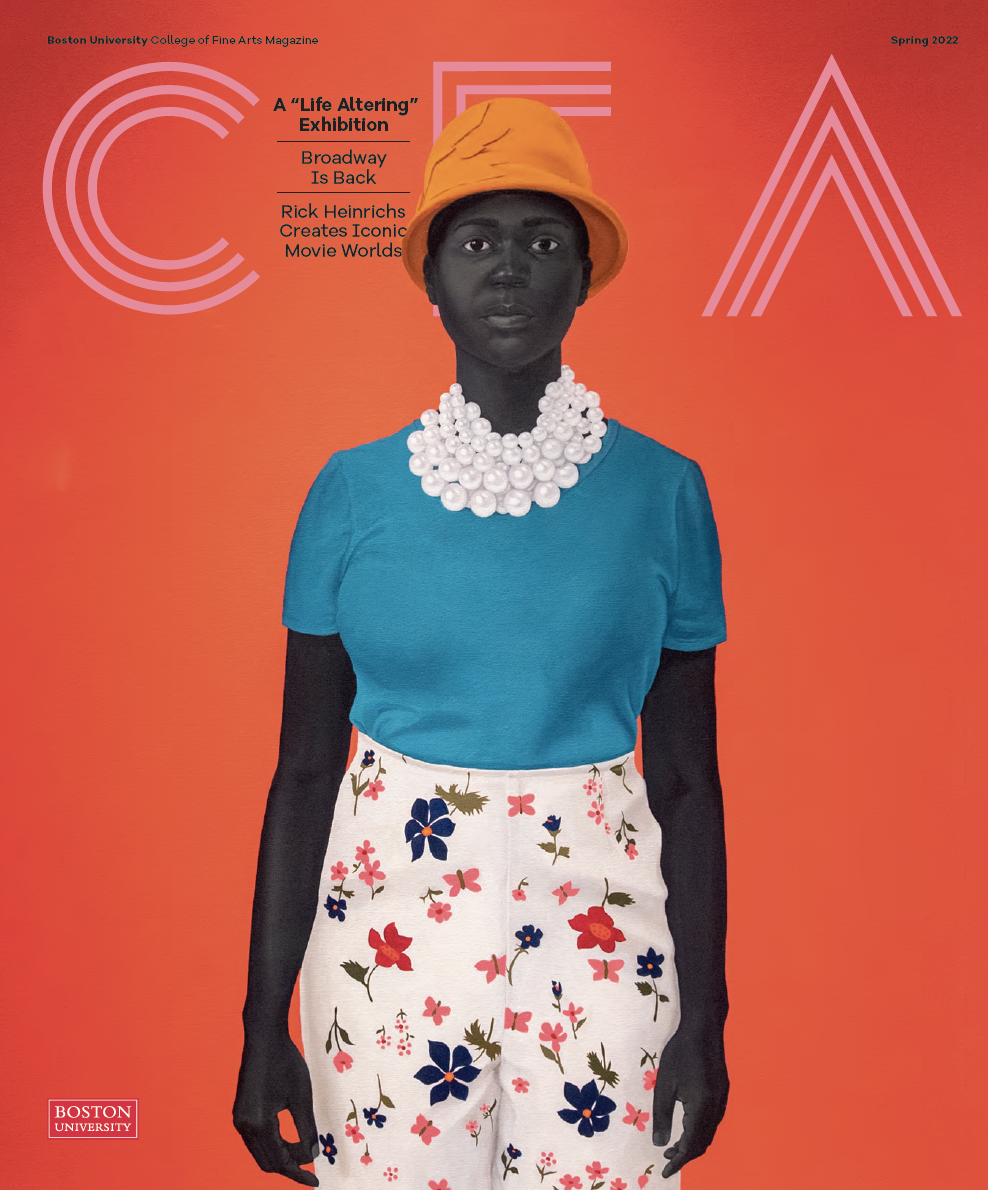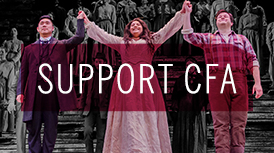Banish the Butterflies
Pianist Matthew Xiong helps musicians overcome performance anxiety
By Pamela Reynolds | Illustrations by Lydia Ortiz
By the age of 11, pianist Matthew Xiong could ascend a stage, calmly survey a sea of expectant faces, and, unperturbed, skillfully sail through Liszt’s Piano Concerto No. 1. For Xiong (’20), playing in front of an audience was exhilarating. Then one day in his early teens, he sat down at the piano at a high-pressure national music competition in his native Australia to perform his beloved Liszt concerto.
He froze.
“I had already been in quite a few competitions by that time, so I was not unfamiliar to the pressure,” he says. “But that competition, I felt extremely nervous. I had a gigantic memory lapse onstage, and it was just unrecoverable—and extremely humiliating.”
From that point on, Xiong was plagued by a dread of performing, something he describes as a “mild form of PTSD.” He carried on with his career, but before performances he would shake uncontrollably and his diaphragm would seize up.
“I would go onstage, and I’d be like, ‘Why am I so cripplingly anxious about this when I love performing and I love playing music?’”
The search for an answer to that question has brought Xiong to where he is today—a music instructor dedicated to helping other musicians overcome potentially career-killing performance anxiety.

Matthew Xiong (’20) works to help musicians manage performance anxiety. Courtesy of Xiong
Xiong teaches at two Boston-area music schools—Talent Music Academy in Brighton and Merry Melody Music Academy in Westwood. He says that traditional advice about overcoming stage fright—practice, practice, practice or play more public concerts—doesn’t begin to account for the complex interplay of factors leading performers to quake in fear onstage. Sometimes performance anxiety can be triggered by one bad performance, like his. Other times it can be related to deeper psychological issues. Sometimes anxiety can be intense and paralyzing, akin to a panic attack, Xiong says, or it can be the racing heartbeat that many of us feel when all eyes are on us.
His assessment is backed by research in the area, says Karin S. Hendricks, an associate professor of music and chair of music education. For example, some studies have suggested that musical performance anxiety is predicted by depression and certain anxiety disorders. Culture, genetics, and even nutrition can also play a role.
“Every one of us has such a complex and unique system of experiences and influences in our lives,” says Hendricks, who coauthored Performance Anxiety Strategies: A Musician’s Guide to Managing Stage Fright (Rowman & Littlefield, 2016). “It’s really not just one thing that causes performance anxiety. We have influences from parents, teachers, experiences, but then we also have our own internal processes. And these all influence us to have our own recipe for anxiety. We call it performance anxiety or stage fright, but even that means something different to every person. What may be butterflies to some people, getting them excited to go onstage and jazzed up to give a marvelous performance, can paralyze another person.”

Karin S. Hendricks, an associate professor of music and chair of music education, is the coauthor of Performance Anxiety Strategies: A Musician’s Guide to Managing Stage Fright (Rowman & Littlefield, 2016). Courtesy of Hendricks
For years after that failed performance, Xiong sought advice from musical mentors about what he might do to quell his paralyzing fear. Everyone told him that he shouldn’t worry, since he’d practiced so much. Their gentle admonishment: just don’t be nervous, you’ll do fine.
“That was really easy for them to say,” he says, “but what could I actually do to not be nervous?”
It wasn’t until Xiong, who received a master’s in music performance at BU, became a music instructor that he moved closer to figuring out how to help others with performance anxiety.
“It was actually when I got into teaching that I realized I need to solve this problem because I’m seeing this in my students and they’re suffering too,” he says. “It breaks my heart. I can see how I was in those situations. It only takes one bad performance experience for them to spiral into the void.”
Xiong began intense research and came across the work of Noa Kageyama, a performance coach at Juilliard, who advocates “centering” as a way of productively channeling nervousness. He combed through studies in the areas of anxiety and sports psychology. He discovered the concept of “flooding” or desensitizing phobia patients by immersing them in anxiety-provoking situations. He knew that such a model of treatment would not translate well to the stage, where anxious musicians are likely to feel even worse after a jittery performance, thereby reinforcing their anxiety.
“It just ends up being catastrophic,” Xiong says.
Over time, he developed his own methods. Rather than desensitize students to their performance fears, he allows them to decide for themselves exactly how much pressure they are willing to put themselves under. At first, they may play only in front of Xiong. Then they might choose to add another student or two. As time passes, they might grow their audiences little by little.
“Anyone could benefit with the kind of incremental exposure that I do with my students when they feel a sense of anxiety,” says Xiong, who has developed several other strategies for conquering stage fright. (For more of them, read “Five Steps to Help Manage Performance Anxiety,” below.)
“If they’re trained in that from the get-go, even if they have a catastrophic experience, they won’t fall into that ‘I’m having a post-traumatic stress response to this.’ They already have the tools to deal with it.”
Five Steps to Help Manage Performance Anxiety
If you experience stage fright before a big performance, pianist and music instructor Matthew Xiong (’20) and Karin S. Hendricks, an associate professor of music and chair of music education, offer suggestions to alleviate that anxiety
Take a holistic approach
Manage stress and maintain good health even offstage. That means eating well, exercising, getting enough sleep, and engaging in mindfulness practices such as meditation, deep breathing, and yoga.
“It’s most helpful to practice mindfulness in everything you do so it becomes a part of your disposition,” says Hendricks, “rather than just a Band-Aid you put on before you perform.”
These mindfulness practices also help build the awareness a performer needs to recognize tension. Once performers are aware of their tension, says Xiong, they can experiment with exercises to release it. One of Xiong’s favorites is to have students assume a floppy, marionette-like posture.
“This is what it feels like to be fully relaxed,” he tells students. “They have to recognize that there’s a different sensation first.”
Practice self-awareness
Xiong leads his students in exercises meant to address the gnawing physical symptoms that can impede a performance.
“The most important step to conquering those physical symptoms is actually just becoming self-aware,” he says. “Often in the moment, we’re not aware because we’re in fight or flight mode. When you tighten up your stomach, when your shoulders go up, when your breathing starts to get really shallow and labored—we’re not conscious of those things because we’re so afraid of the situation.”
When Xiong notices those symptoms, he asks his students to stop playing and acknowledge them as well.
“In piano, as soon as that tension occurs in your arms, you can’t play,” he says. “There’s no way for you to continue that free flow of music coming out of you. I can hear it in the playing. It’s not just a visual thing.”
Challenge negative thoughts
“Just like we practice our art and craft, we have to practice positive thoughts,” says Hendricks. “We have to unpractice negative thinking. The first step is noticing what we’re thinking, noticing what we’re feeling. For so many of us who were trained in classical music, it’s all about this level of heightened perfection. You’re so into getting everything right, but then you become afraid of getting things wrong, including your own thoughts, so you become afraid of your own anxieties.”
Hendricks suggests students practice replacing anxious thoughts with positive affirmations, including “restorying” past traumatic events. And Xiong asks his students to write down their negative thoughts, then actively question them.
“There’s always going to be a chance that you could make a mistake onstage,” says Xiong. “To challenge that would be to say, okay, what if that happened? Would my life fall apart? Often the answer is no. Just accept that it could happen, know that you can recover from it, and there is no reason to continue to linger on that mistake. This is creating a different pathway for them to go down, instead of spiraling into their negative thoughts. They can now question their thoughts.”
Reframe your experiences
Every performance should be regarded as just practice for the next, says Hendricks.
“Sometimes we think this is life or death,” she says. “Having watched students have juries, you can see the terror—like this is the only moment in their life. But it’s only one. They’re only practicing for the next jury.”
Recognize audience support
It’s important for students to understand that an audience is not there to judge a performance, but rather to simply enjoy it.
“People are here to listen to you play—not for your failure,” Xiong says.
Hendricks agrees: “For some reason, because we’ve made this thing where you perform on a stage and you have a proscenium between you and the audience, it becomes this practice of judgment that then brings fear with it. We need to change the culture.”











